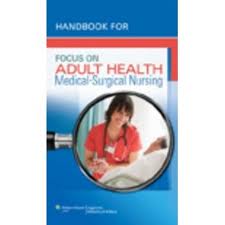Περιγραφή
Clinical Nursing Skills at a Glance is the must-have study and revision guide for pre-registration nursing students and newly qualified practitioners alike, providing a visual summary of the essential aspects of clinical nursing skills and procedures. The core platforms of professional practice applicable to nursing adults in a variety of clinical settings are emphasised throughout the text, including care planning, assessment, management, prioritisation and co-ordination of care.
Designed to allow rapid reference to critical information, the book is divided into 12 sections organised around systems of the body, with each chapter describing a specific clinical skill. With high-quality images throughout, applications to practice, a review quiz, ‘red flags’ highlighting important aspects to consider in the clinical environment, and reflecting current NMC standards of proficiency for registered nurses, this new evidence-based guide:
- Allows easy access to the necessary knowledge and skills required by nurses to provide quality care
- Discusses general principles of care applicable to all, including verbal and non-verbal communication, record keeping, and admission and discharge procedures
- Covers mandatory skills such as basic life support, infection control, and medicine management
- Includes access to a companion website featuring interactive multiple-choice questions, case studies, and links to additional resources
Offering superb illustrations, up-to-date information, and a reader-friendly approach, Clinical Nursing Skills at a Glance is an invaluable resource for pre-registration nursing students as well as newly qualified nurses, healthcare assistants, and allied healthcare professionals looking to expand their knowledge of nursing skills and procedures.












